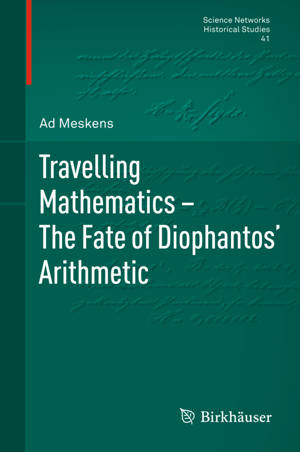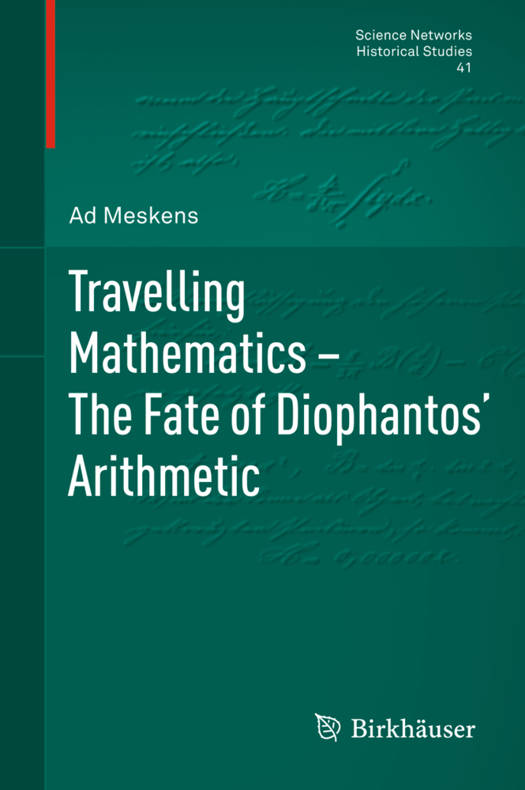
- Retrait gratuit dans votre magasin Club
- 7.000.000 titres dans notre catalogue
- Payer en toute sécurité
- Toujours un magasin près de chez vous
- Retrait gratuit dans votre magasin Club
- 7.000.0000 titres dans notre catalogue
- Payer en toute sécurité
- Toujours un magasin près de chez vous
Travelling Mathematics - The Fate of Diophantos' Arithmetic
The Fate of Diophantos' Arithmetic
Ad Meskens
52,95 €
+ 105 points
Format
Description
In this book the author presents a comprehensive study of Diophantos' monumental work known as Arithmetika, a highly acclaimed and unique set of books within the known Greek mathematical corpus. Its author, Diophantos, is an enigmatic figure of whom we know virtually nothing.Starting with Egyptian, Babylonian and early Greek mathematics the author paints a picture of the sources the Arithmetika may have had. Life in Alexandria, where Diophantos lived, is described and, on the basis of the limited available evidence, his biography is outlined.Of Arithmetika's 13 books only 6 survive in Greek. It was not until 1971 that these were complemented by the discovery of 4 other books in an Arab translation. This allows the author to describe the structure, the contents and the mathematics of the Arithmetika in detail. Furthermore it is shown that Diophantos had a remarkable skill to solve higher degree equations.In the second part, the author draws our attention to the survival of Diophantos' work in both Arab and European mathematical cultures. Once Xylander's critical 1575 edition reached its European public, the fame of the Arithmetika grew. It was studied, translated and modified by such authors as Bombelli, Stevin and Viète. It reached its pinnacle of fame in 1621 with the publication of Bachet's translation into Latin. The marginal notes by Fermat in his copy of Diophantos, including his famous "Last Theorem", were the starting point of a whole new research subject: the theory of numbers.
Spécifications
Parties prenantes
- Auteur(s) :
- Editeur:
Contenu
- Nombre de pages :
- 210
- Langue:
- Anglais
- Collection :
- Tome:
- n° 41
Caractéristiques
- EAN:
- 9783034606424
- Date de parution :
- 27-09-10
- Format:
- Livre relié
- Format numérique:
- Genaaid
- Dimensions :
- 157 mm x 234 mm
- Poids :
- 430 g

Les avis
Nous publions uniquement les avis qui respectent les conditions requises. Consultez nos conditions pour les avis.






